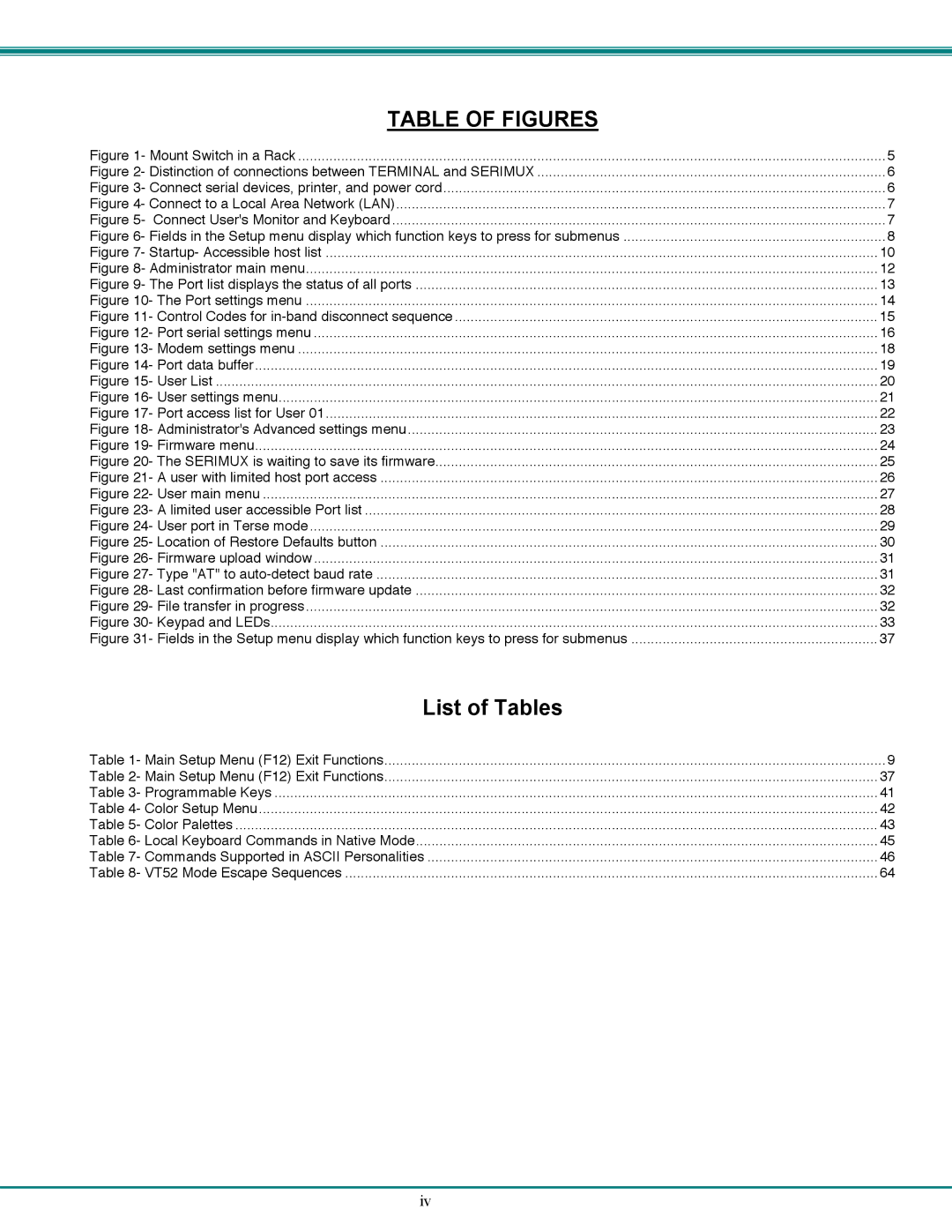
TABLE OF FIGURES |
|
Figure 1- Mount Switch in a Rack | 5 |
Figure 2- Distinction of connections between TERMINAL and SERIMUX | 6 |
Figure 3- Connect serial devices, printer, and power cord | 6 |
Figure 4- Connect to a Local Area Network (LAN) | 7 |
Figure 5- Connect User's Monitor and Keyboard | 7 |
Figure 6- Fields in the Setup menu display which function keys to press for submenus | 8 |
Figure 7- Startup- Accessible host list | 10 |
Figure 8- Administrator main menu | 12 |
Figure 9- The Port list displays the status of all ports | 13 |
Figure 10- The Port settings menu | 14 |
Figure 11- Control Codes for | 15 |
Figure 12- Port serial settings menu | 16 |
Figure 13- Modem settings menu | 18 |
Figure 14- Port data buffer | 19 |
Figure 15- User List | 20 |
Figure 16- User settings menu | 21 |
Figure 17- Port access list for User 01 | 22 |
Figure 18- Administrator's Advanced settings menu | 23 |
Figure 19- Firmware menu | 24 |
Figure 20- The SERIMUX is waiting to save its firmware | 25 |
Figure 21- A user with limited host port access | 26 |
Figure 22- User main menu | 27 |
Figure 23- A limited user accessible Port list | 28 |
Figure 24- User port in Terse mode | 29 |
Figure 25- Location of Restore Defaults button | 30 |
Figure 26- Firmware upload window | 31 |
Figure 27- Type "AT" to | 31 |
Figure 28- Last confirmation before firmware update | 32 |
Figure 29- File transfer in progress | 32 |
Figure 30- Keypad and LEDs | 33 |
Figure 31- Fields in the Setup menu display which function keys to press for submenus | 37 |
List of Tables |
|
Table 1- Main Setup Menu (F12) Exit Functions | 9 |
Table 2- Main Setup Menu (F12) Exit Functions | 37 |
Table 3- Programmable Keys | 41 |
Table 4- Color Setup Menu | 42 |
Table 5- Color Palettes | 43 |
Table 6- Local Keyboard Commands in Native Mode | 45 |
Table 7- Commands Supported in ASCII Personalities | 46 |
Table 8- VT52 Mode Escape Sequences | 64 |
iv
